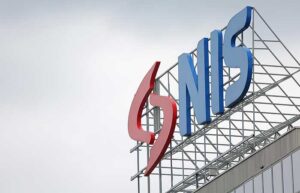
In 2025, Ukrainian cities received 73 trams, which is 29% or 30 vehicles less than in 2024, according to AllTransUA.
‘The tram market in 2025 declined slightly compared to 2023 and 2024, but it still relied on the acquisition of used cars,’ the website said.
According to AllTransUA, of the 73 tram cars received last year, 58 were used cars and 15 were new, purchased with budget funds and as part of cooperation with international financial organisations (IFOs).
The lion’s share of used trams were Swiss carriages, which were received as aid by Lviv and Vinnytsia.
‘While the carriages received by Lviv already have accessible entrances, Vinnytsia will receive fully high-floor carriages, which it will equip with a low-floor section on its own, based on a project used in Zurich,’ the website reports.
Kharkiv received another 10 used Tatra carriages and their modernisation.
All new carriages in 2025 were manufactured by Tatra-Yug (the carriages are assembled at the Pivdenmash plant in Dnipro – IF-U). In particular, last year the company completed the delivery of K1T306 carriages for Odesa (seven carriages funded by the IMF) and delivered eight carriages to Kyiv using budget funds.
‘It is interesting that this year’s batch of carriages for Kyiv differs from the previous one in terms of door configuration, so there are now three known variants of K1T306,’ notes AllTransUA.
At the same time, in 2025, the last tram system in the controlled part of the Donetsk region in Druzhkivka was closed. The report explains that as a result of Russian shelling, the tram’s power system was significantly damaged, and given the slow approach of the front line, it was decided not to restore it.
‘This year, the supply of trams will continue under existing agreements within the framework of cooperation with international financial organisations, in particular for Dnipro and Kamyanske. In addition, Lviv will complete the receipt of used Schindler carriages,’ AllTransUA reminds us.
According to the data provided, from 2012 to 2020, Ukrainian cities were supplied with mostly used tram cars and new ones purchased with budget funds – the largest number of which was received in 2017 – 156 units (113 of which were used).
Last year, out of 103 carriages, cities received 12 new ones (funded by the IMF), 65 used ones (received as aid), and 26 used ones purchased with budget funds.

According to Serbian Economist, Serbian oil and gas company NIS has announced the signing of a contract to import the first batches of oil via the Adriatic oil pipeline (JANAF) for the refinery in Pančevo and preparations to resume processing after a shutdown in early December 2025 due to a shortage of raw materials amid sanctions restrictions.
According to Reuters, the first shipment includes about 85,000 tonnes of Iraqi Kirkuk oil, followed by a smaller batch of Libyan Es Sider. These volumes will keep the plant running for at least a few days, and Serbian President Aleksandar Vučić has predicted that the refinery will be able to resume operations on 17-18 January, with the production of petroleum products likely to begin on 25-26 January.
The resumption of imports became possible after the US Treasury’s Office of Foreign Assets Control (OFAC) issued a temporary licence allowing NIS to continue operating until 23 January 2026. Reuters also reported that a separate licence had been issued to the operator JANAF to transport oil for NIS for the same period.
The situation surrounding NIS remains linked to negotiations on changes to its ownership structure. The US is awaiting negotiations on the withdrawal of the Russian share, with the deadline for the negotiation process extended to 24 March 2026, and Hungarian company MOL is named as one of the participants in the discussions.
NIS is a key player in the Serbian fuel market: the company owns the country’s only oil refinery (Pančevo) and the largest network of petrol stations, so any disruption in the supply of raw materials directly affects the balance of the petroleum products market and Serbia’s import needs.

Global investments in the construction of data centres will total at least $3 trillion by 2030, according to analysts at the international rating agency Moody’s Ratings.
This amount includes investments in the purchase of servers, computing equipment, the creation of the necessary infrastructure, and the provision of power supply.
The bulk of the costs will be borne directly by large IT companies. This year alone, six leading American companies providing computing services will spend $500 billion on data centres, according to Moody’s report. These include Microsoft Corp., Amazon.com Inc., Alphabet Inc., Oracle Corp., CoreWeave Inc. and Meta.
Banks will continue to play an important role in providing financing to the industry, while other institutional investors will also provide companies with funds to expand their data centre capacity, experts say.
According to a report by investment company Colliers, data centres accounted for 31% of total investment in private real estate construction in the first three quarters of 2025. The average figure since 2020 has been around 15%.

The National Bank of Ukraine (NBU) increased dollar sales on the interbank market by $79.0 million, or 12.5%, to $712.1 million last week, according to statistics on the regulator’s website.
According to the NBU, during the first four days of last week, the average daily negative balance of currency purchases and sales by legal entities decreased to $67.3 million from $69.3 million during the same period a week earlier, totaling $269.3 million.
On the currency exchange market for the population, on the contrary, the negative balance increased to $46.5 million from $21.9 million the week before last, and on all days, the purchase of non-cash currency exceeded its sale.
The official hryvnia-to-dollar exchange rate, which started last week at 42.2942 UAH/USD, weakened daily to a new historic low, broke through the 43 UAH/USD level, and ended the week at 43.0757 UAH/USD.
The hryvnia’s exchange rate against the euro also fell by 1.1% over the week, from 49.5794 UAH/EUR1 to 50.1444 UAH/EUR1. During these days, it also broke through the important level of 50 UAH/EUR1 for the first time and reached a historic low of 50.1762/EUR1.
On the cash market, the dollar exchange rate over the past week followed the official trajectory, with the dollar rising by approximately 77 kopecks over the week: purchase – to 42.84 UAH/$1, sale – to 43.26 UAH/$1, while on the black market on Monday it reached 43.4-43.5 UAH/$1, with the euro also rising in price by 80 kopecks and currently trading at: purchase – 50 UAH/EUR11, sale – 50.73 UAH/EUR1.

Foreign Minister Espen Barth Eide, who is visiting Kyiv, announced the allocation of 4 billion kroner in aid to Ukraine, which will be directed to the energy sector and the functioning of the Ukrainian state.
“Today in Kyiv, it is 16 degrees below zero. We can only imagine how cold it is when the electricity disappears, often for six hours at a time. This is money that Ukraine desperately needs and needs now. Several times a week, Russia attacks the infrastructure that provides electricity to ordinary people in Ukraine. Ensuring that Ukrainians can keep warm, cook food and live their lives more or less as usual is very important for them to be able to continue to endure this war. A war they are fighting on behalf of all of us,” Eide said.
It is noted that Norway is in constant dialogue with the authorities in Kyiv and other stakeholders regarding the distribution of Norwegian support to the energy sector. The goal is to meet Ukraine’s needs and share the risks. It is important to support energy production and strengthen the resilience of the energy sector.
‘It is necessary to finance the purchase of gas that can be delivered quickly. At the same time, it is necessary to repair damaged infrastructure and purchase spare parts,’ Eide explained.
Norway’s contribution will be channelled through partners such as the European Bank for Reconstruction and Development (EBRD) and the European Energy Community, which aims to extend the EU’s internal energy market to third countries such as Ukraine. This has been agreed with other key donors.
The official exchange rate on Monday was 1 Norwegian krone to 4.2606 hryvnia (or about $0.1).

Last year, Ukraine’s vehicle fleet was replenished with more than 110,200 zero-emission vehicles (passenger and commercial), which is twice as many as in 2024, according to Ukravtoprom’s Telegram channel.
Of this number, passenger car registrations increased 2.1 times to 107,470 units, and commercial vehicle registrations also increased more than 2.1 times to 2,773 units. Five electric buses were also registered (1.5 times more).
At the same time, the share of new vehicles in BEV registrations increased slightly and amounted to 21% compared to 20% in 2024.
The top five most popular new electric vehicles on the market in 2025 were led by the Volkswagen ID.Unyx with 3,162 units; followed by the BYD Song Plus EV – 2,948 units, BYD Leopard 3 – 1,623 units, ZEEKR 7X – 1,558 units, and BYD Sea Lion 07 – 1,337 units.
Among imported used electric vehicles, the most popular were the TESLA Model Y – 10,683 units; TESLA Model 3 – 9,348 units; NISSAN Leaf – 7,559 units; KIA Niro – 5,154 units; and HYUNDAI Kona Electric – 4,145 units.
According to the association, in December 2025, more than 32,800 electric vehicles (new and used) were added to the Ukrainian car fleet, which is 8.6 times more than a year earlier, including 32,134 passenger cars (8.8 times more) and 699 commercial vehicles (4.6 times more).
As reported, the surge in demand for electric vehicles in the last months of 2025 was due to information about the cancellation of VAT exemptions on customs clearance from 1 January 2026.
In particular, the share of electric vehicles in the new passenger car market grew from 14.5% to 28.3% over the year.